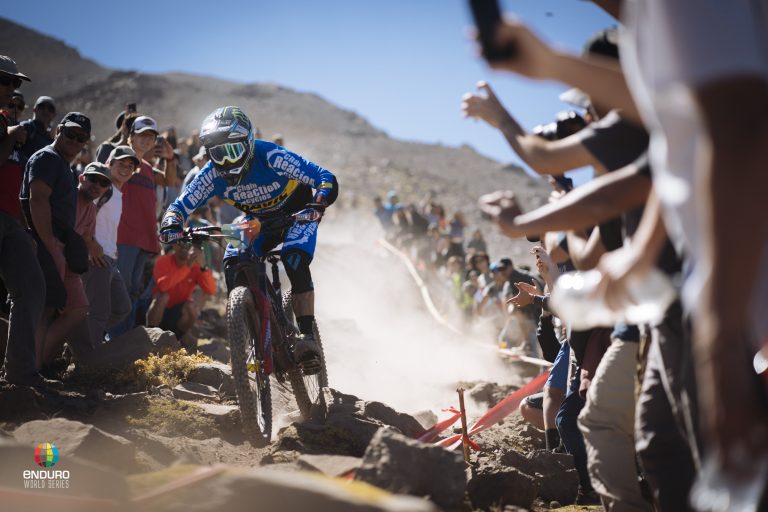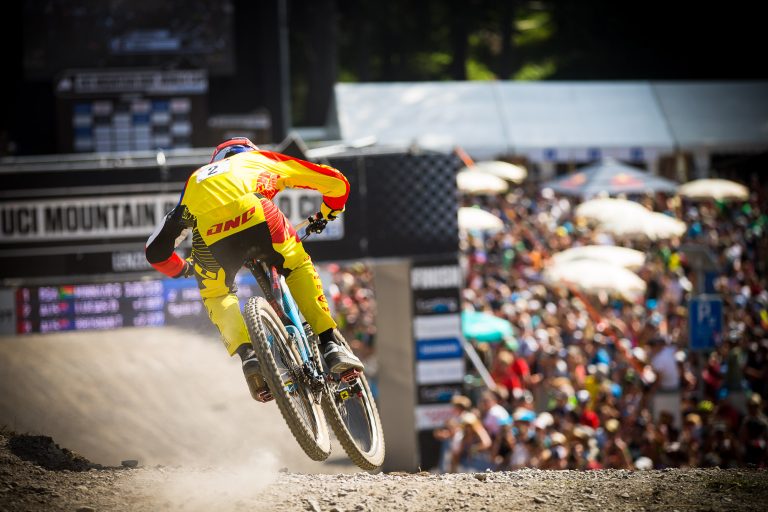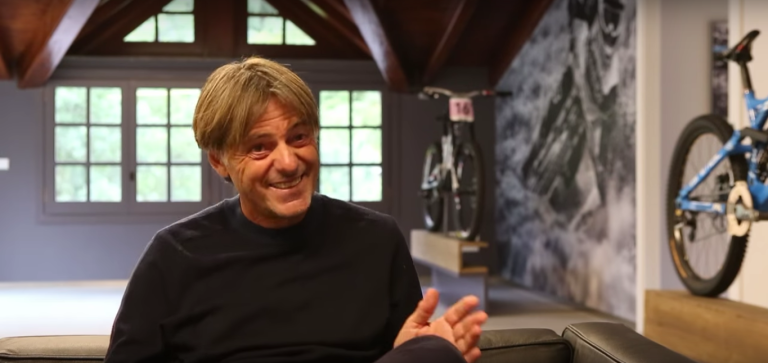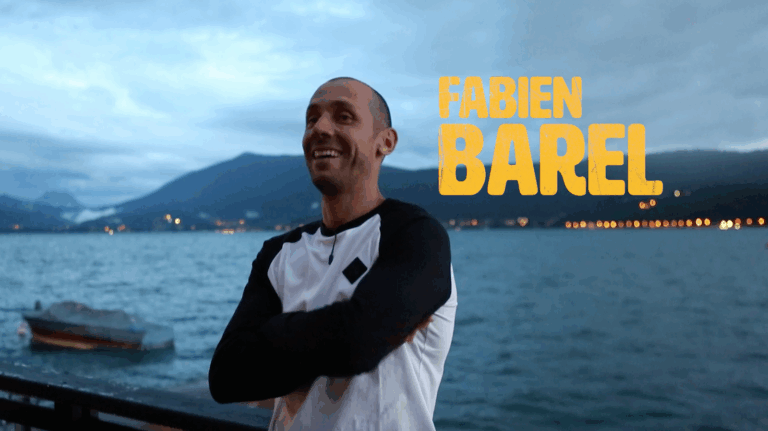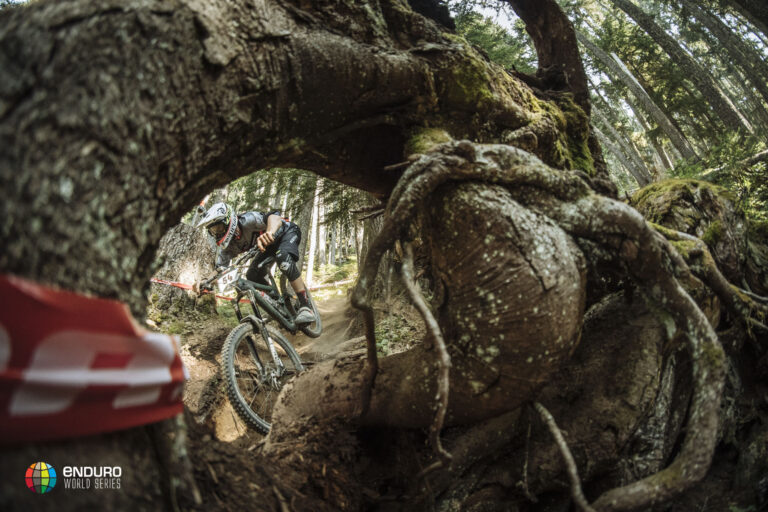 “It’s a really cool story,” starts Darren, “Chris had been working on a rulebook, a sort of guideline for Enduro that he was presenting to the UCI. He’d been in touch with us about including the event, we were super interested and he’d also been in touch with Enrico and Fred and a number of other Enduro event organisers. He presented it to the UCI and the UCI management said ‘You know what? Not for 2013. No thanks, not this year’. I think it was the very next day that Chris resigned from the UCI. The second I saw that I marched down to my boss’ office and said, ‘We gotta hire this guy’. Let’s at the very least hire Chris and if the UCI’s not gonna do it, let Crankworx do it. So I called Chris and explained our idea of hiring him. You bring the rules and we’ll bring the marketing engine and the power of Crankworx and the brand and all that sort of stuff. And he was like, ‘Wow, OK, that sounds interesting, I do already have a meeting set up with Enrico Guala and Fred Glo at Roc d’Azur in five days and I will take this idea to them and see what they think.’ Unfortunately I didn’t get to be there, but they discussed the concept behind it. Chris came back to me saying they want to do it, let’s create an enduro world series. There’s no question that Fred and Enrico bring the experience and the rich history of what Enduro is. We felt that we brought the horsepower, the marketing, to take what they were doing to completely next level. So we started talking about how was this going to work. We all decided we’d be owners in the company and because I’m super busy with Crankworx, because Enrico is super busy with Super Enduro and Fred’s super busy with the Enduro series in France, that Chris would be the Managing Director, the face, the voice. I could not think of a better person to be our Managing Director.”
“It’s a really cool story,” starts Darren, “Chris had been working on a rulebook, a sort of guideline for Enduro that he was presenting to the UCI. He’d been in touch with us about including the event, we were super interested and he’d also been in touch with Enrico and Fred and a number of other Enduro event organisers. He presented it to the UCI and the UCI management said ‘You know what? Not for 2013. No thanks, not this year’. I think it was the very next day that Chris resigned from the UCI. The second I saw that I marched down to my boss’ office and said, ‘We gotta hire this guy’. Let’s at the very least hire Chris and if the UCI’s not gonna do it, let Crankworx do it. So I called Chris and explained our idea of hiring him. You bring the rules and we’ll bring the marketing engine and the power of Crankworx and the brand and all that sort of stuff. And he was like, ‘Wow, OK, that sounds interesting, I do already have a meeting set up with Enrico Guala and Fred Glo at Roc d’Azur in five days and I will take this idea to them and see what they think.’ Unfortunately I didn’t get to be there, but they discussed the concept behind it. Chris came back to me saying they want to do it, let’s create an enduro world series. There’s no question that Fred and Enrico bring the experience and the rich history of what Enduro is. We felt that we brought the horsepower, the marketing, to take what they were doing to completely next level. So we started talking about how was this going to work. We all decided we’d be owners in the company and because I’m super busy with Crankworx, because Enrico is super busy with Super Enduro and Fred’s super busy with the Enduro series in France, that Chris would be the Managing Director, the face, the voice. I could not think of a better person to be our Managing Director.”
At first glance Crankworx definitely has a very intense aura, the images of the baying crowds on Heckler’s Rock chugging back beer as if prohibition was once again imminent. The partying, the big trucks, and Slopestyle; the discipline that doesn’t so much attract people’s attention as pull spectators in by the balls. Whether the far more mild mannered enduro would fit into this atmosphere doesn’t seem to even be in consideration, Chris’ attitude towards being a part of Crankworx is nothing but enthusiastic, “It’s the biggest mountain bike festival in the world isn’t it? It’s the most famous location, being part of Whistler is a huge thing for any sport. They obviously have great riding terrain and they’ve just done a really good job of the lifestyle element around it. It’s not ever really been that much about racing which I think is a huge thing for Enduro; for it to be about more than just racing.”
Crankworx does have previous with this kind of race, as Darren explains, “We did all sorts of different things at the beginning with Super D and various variations of what we thought Enduro was. Early on at Crankworx we started the Garbanzo downhill which is a cross between a Megavalanche and a downhill race.” Yet undoubtedly, the jewel in its crown has always been that grand finale of the Slopestyle. “The athletes refer to the Slopestyle at Crankworx as the ‘Superbowl of Slopestyle’. We’re in a unique position where we can bring great coverage, great exposure for the athletes, great exposure for the sport.” Despite looking very different to enduro on the surface the two have walked a similar path. Both have been around a while with sporadic individual events all over the place. In a comparable way to how the Enduro  Mountain Bike Association was set up last November to oversee the new World Series, so was the Freeride Mountain Bike Association (FMBA) set up in 2010 to pull together the freeride scene and events. Darren happens to be involved in both, “In the last year I’ve just become a member of the advisory board of the FMBA. We were not in disagreement with what the FMBA were doing but just thought, they’re doing their thing and we’re gonna do ours but we made a conscious decision last fall that we want to build the sport as a whole.”
Mountain Bike Association was set up last November to oversee the new World Series, so was the Freeride Mountain Bike Association (FMBA) set up in 2010 to pull together the freeride scene and events. Darren happens to be involved in both, “In the last year I’ve just become a member of the advisory board of the FMBA. We were not in disagreement with what the FMBA were doing but just thought, they’re doing their thing and we’re gonna do ours but we made a conscious decision last fall that we want to build the sport as a whole.”
It’s incredible that these organisational bodies are popping up like they are. In a sport that has at the top end of competition been largely controlled by the UCI, it goes to show just how diverse riding a mountain bike can be and how much demand for the variations there is. The fact they’re both run by enthusiastic alliances of riders and people that truly care about the sport can only be a good thing. The freedom they allow is something Chris is very aware of, “I think Slopestyle’s been able to develop on its own terms and I think that’s led it to now being in the X Games and stuff. It’s really good for it, it’s such a progressive discipline, it needs to move with the times, fast, quickly and I think it’s been a big advantage for Slopestyle to develop the series in that sense. I kinda see Enduro the same really. We’re able to move pretty fast, we’re learning every race as organisers, so to be independent means we can adjust stuff as we go, which is much harder to do when you’re part of a larger organisation. I think we need to continue to define it, still loads of people have their opinions of what enduro is so we need to continue to define what we’re trying to do, what enduro racing is, what riders need to expect. You’ve got to have a vision but you’ve got to constantly check that it’s in line with what everyone wants. Making sure that the essence of that discipline is kept, so understanding the culture. When it’s early it can go in a million and one different directions, you’ve got to be very open to suggestion and listen. In the UCI the rules are always written and never tested; I think this year we’re testing a lot of different things in different areas and that will give us a much better handle on which direction to take because of the first hand experience of what’s been good and bad.”



